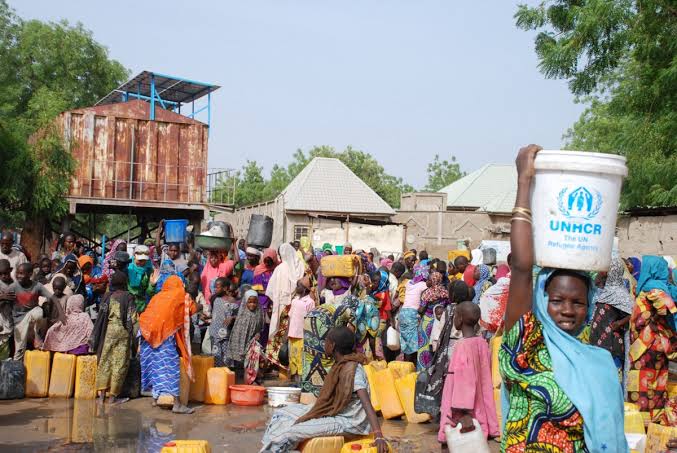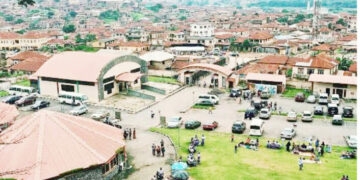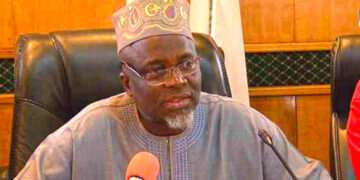National Commission of Refugees, Migrant and Internally Displaced Persons (NCRMIDP) in collaboration with the Peace Institute, has begun empowerment of 600 Internally Displaced Persons (IDPs) youths in Science, Technology, Engineering, Arts, and Mathematics, (STEAM).
Speaking during the flag-off of the empowerment initiative, in Local Educational Agency (LEA) Primary School, Waru, in Abuja, the convener of the institute, and a lecturer in Harvard University, United States of America, Prof Hausa Ibrahim, said she returned to Nigeria on a mission to take away children from the streets and improve their lives.
Ibrahim, who has been to 70 countries and taught in 12 countries, said she is back to Nigeria to teach children science technology engineering arts, and mathematics.
Stating that the empowerment program is geared towards raising the hopes of Nigerians despite insecurity challenges, she said that facilitators from around the world have been engaged to ensure that the children are properly trained on the outlined subjects.
In her words: “We don’t care whose child you are. We want to inspire, we want them to believe in themselves, we want them to know they can do anything and be anything God created them to be.
“We also open up opportunities for scholarships for students that are very good; we will allow them to have opportunities outside the country.”
“We wanted to have this programme for 10 years rolling and we started 2019 or 2019, but COVID happened. So, immediately after COVID. This is the first time we are doing it.”
On her part the commissioner, National Commission of Refugees, Migrant and Internally Displaced Persons, Iman Suleiman-Ibrahim said: “When children become displaced, it affects their learning. So, one of our core areas around our strategic roadmap is to increase access to learning and it is the whole of society approach.”
She stressed the need for every sector of society to come with their contribution and enhanced access to learning.
“I am the future; you are going to see a lot of schools being refurbished in the host communities. This is one of them and there’s one again in a camp in Zamfara and many more.
“So, we are working with state governments from the local government level to see how we can be able to increase capacities of host communities and exit crimes.”
On her part, director general National Agency for the Prohibition of trafficking in persons (NAPTIP) Dr. Fatima Waziri-Azi, commended the federal government for partnering with the Peace Initiative to carry-out the empowerment project, adding that the program goes in line with her agency.
“When we talk about human trafficking, it’s something that cuts across for us, we provide a lot of protection; we provide prevention; we provide prosecution; we provide partnership and provide policy so it has to do with humanity. It has to do with human beings.
“For us in NAPTIP, one of the strategies we use is to empower and rehabilitate victims of human trafficking and also survivors of sexual and gender-based violence. So, yes, it is in line and at the end of the tunnel, all we wanted to see is to enhance the capacity of these groups of people and let them know that yes, we know awful things have happened to you in life, but you always have that fighting chance to live on and for government to consistently invest in areas of empowerment in areas in rehabilitation. I think it’s something we should be deliberate about,” she stated.





